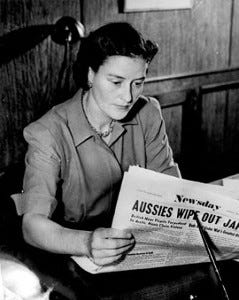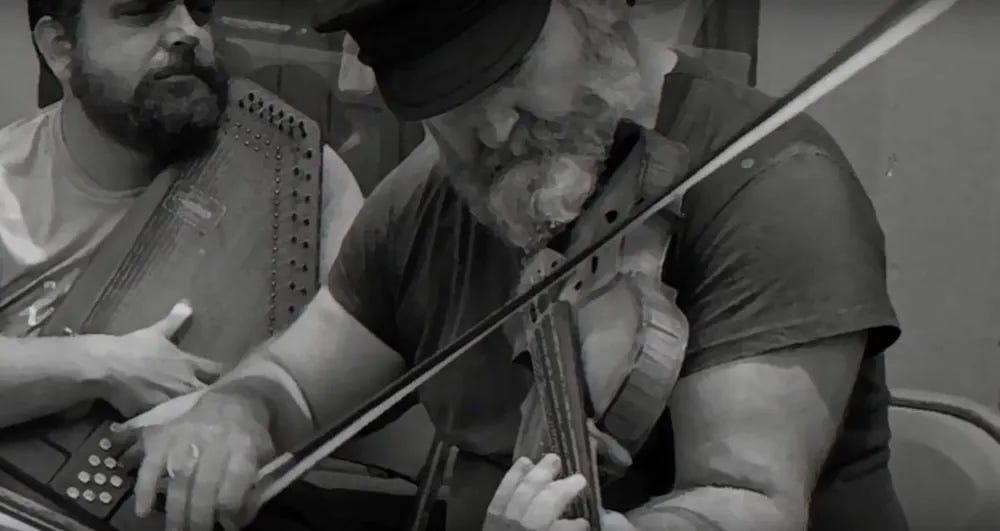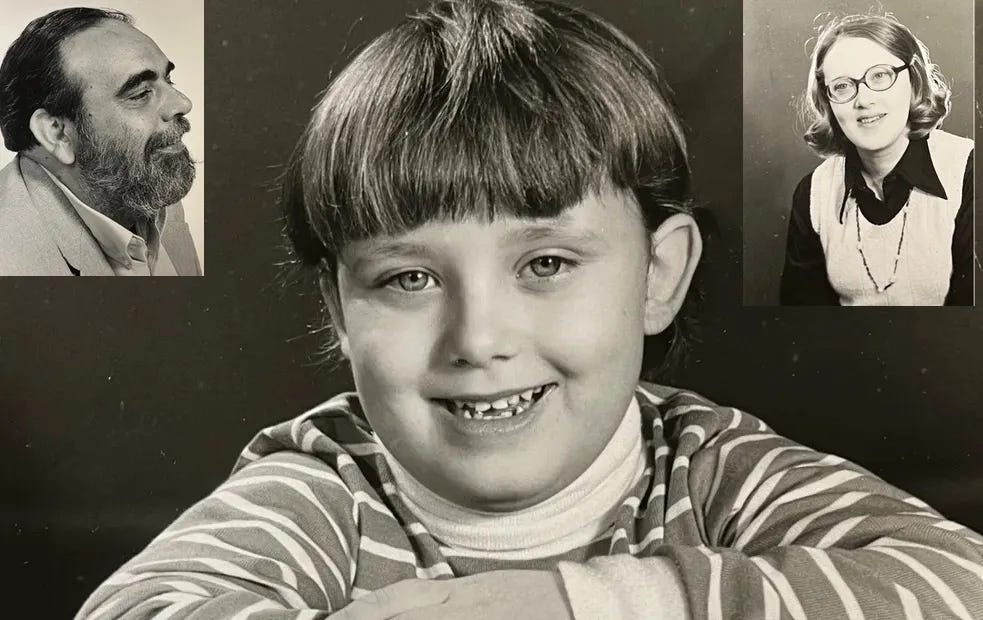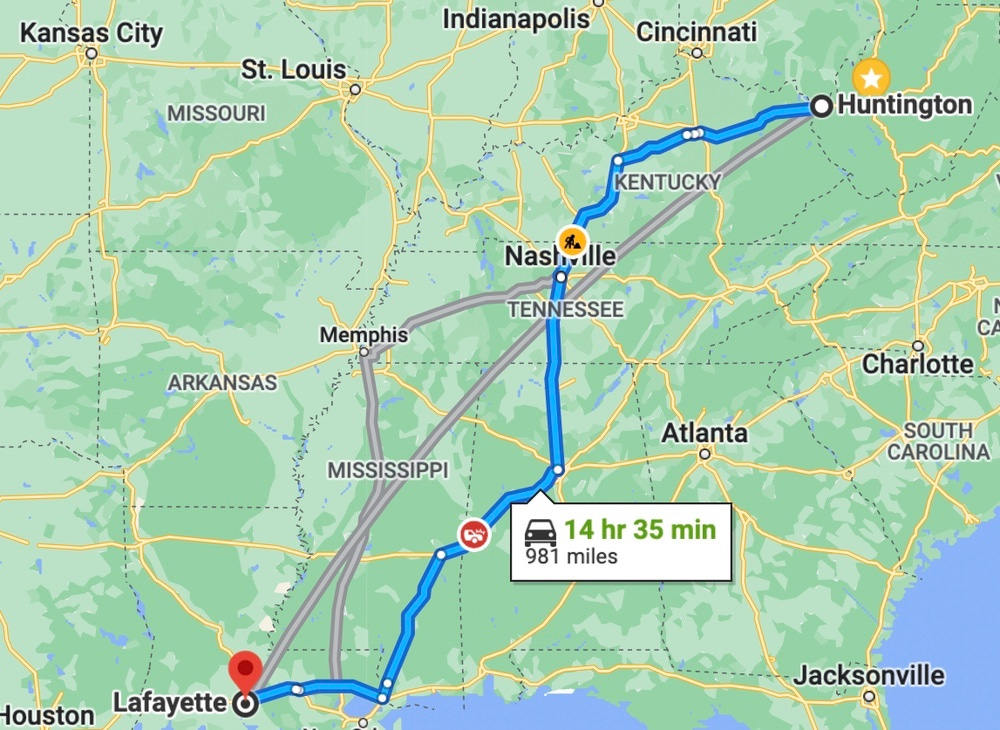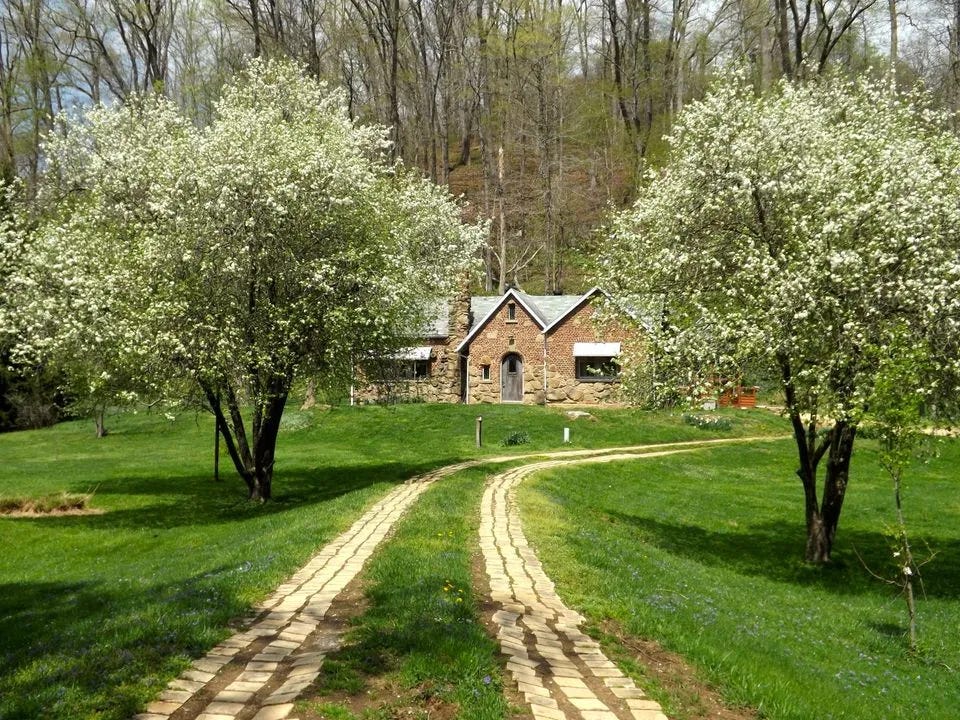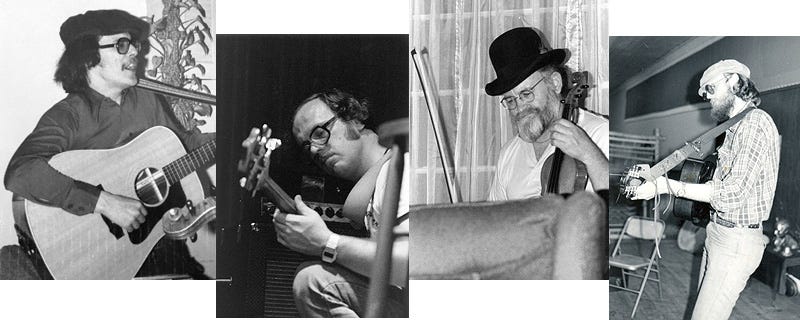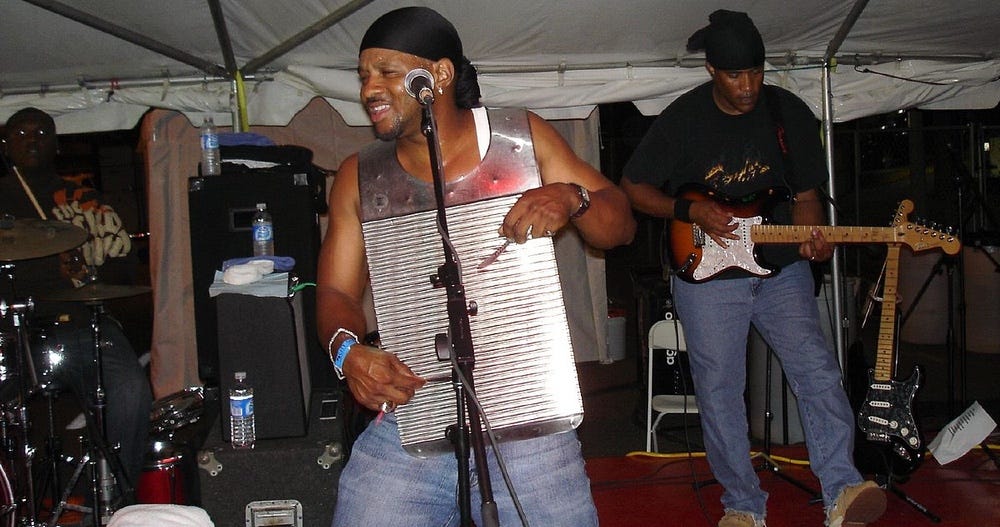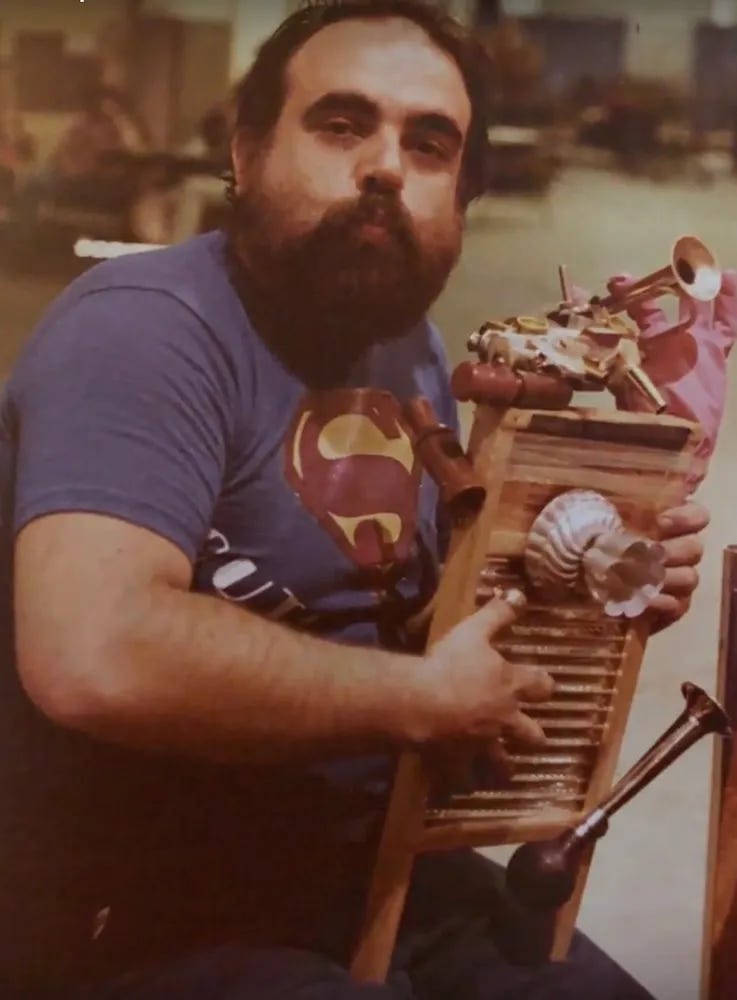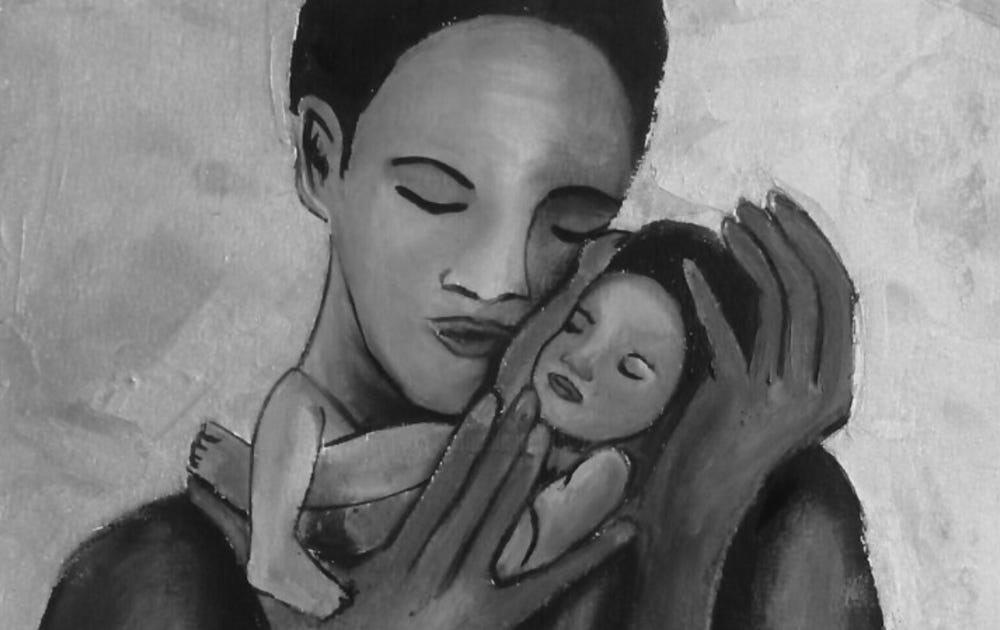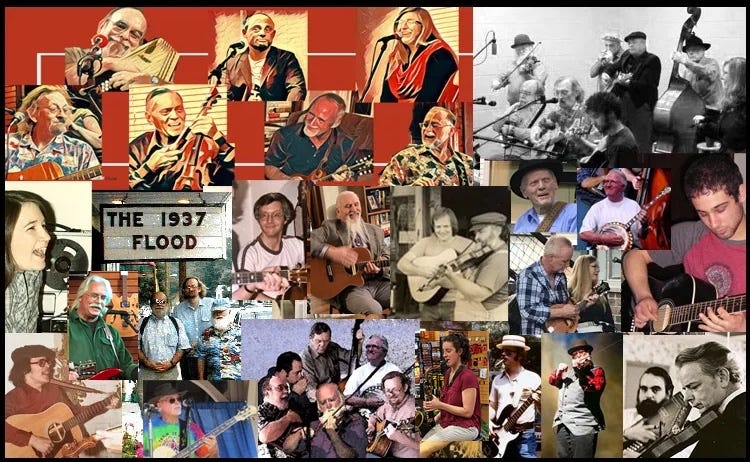In the spring of 1976, the Peyton family — David, Susie and 4-year-old Davy — came back to the green rolling hills of West Virginia after their amazing winter among the Cajuns in Louisiana’s swamps, listening to the fiddle, the squeezebox and the tit-fer in fais do-dos in and around Lafayette.
It all started a year earlier, when David was one of only five journalists in the entire nation to be named 1975 recipients of Alicia Paterson Foundation fellowships for travel and study. The 31-year-old Peyton took a year's leave from his position as editorial page editor of The Huntington Advertiser to work on a project he called “Cajun and Appalachian: Two Cultures in Transition.”
The project also was to have far-reaching consequences for Dave’s nascent musical family back home in Huntington as it was busily evolving into The 1937 Flood.
"Dave Peyton is uniquely qualified to research this subject,” Huntington Publishing Co. chief N.S. "Buddy" Hayden said. "His great interest and his considerable knowledge of Appalachia have been evident to our readers for some time. Now many others will benefit from his dedication." (Click the button below to see the complete story.)
The foundation program had been established 10 years earlier in memory of Alicia Patterson, who was editor and publisher of Newsday for more than 20 years until her death in 1963.
Still today, winners of these grants are chosen by an annual competition. Applications are accepted from U.S. citizens who are print journalists with at least five years of professional experience.
Just before David launched his own project, he sat down at the end of March 1975 with Advertiser reporter Lin Chaff to discuss the work ahead. Click below for Lin’s story:
The fellowship’s only stipulation was that Peyton write a dozen newsletters over the year to be distributed to some 250 people and institution around the country. Many of those newsletters were to focus on music of Appalachia and of Acadia.
Enter Joe Dobbs
Fortuitously, less than a month after Peyton started his work, he met a man who was to play a significant role in his research (and be a dear friend for the next 40 years).
Fiddler Joe Dobbs — whom Dave and Charlie met at Huntington’s Dogwood Arts and Craft Festival in April — grew up in northern Louisiana and often worked and played with Cajuns in his early years. Joe helped Dave identify musical currents he could navigate in Cajun culture.
Peyton spent the first half of his fellowship year — April through September — traveling Appalachia to interview new and old friends on various subjects.
Then in October, he and the family headed to Lafayette for a winter in the place that young Davy called “Weeziana,” meeting Acadia counterparts, especially musicians.
As excited as they were for the adventure, the family dreaded one thing: leaving Peyton Place, their beautiful home on Huntington’s Mount Union Road, unoccupied for those six months.
Enter Rog Samples
That’s when Roger Samples rode to the rescue. Rog was, after all, standing in need of a place to live, being between marriages at the moment.
The resulting situation — Roger rattling around that big house with only Josephine the Cat as a roommate, Joe newly initiated into the Family Flood and eager try out new sounds, and Charlie always looking for an excuse to pick — prove to be a creative time for the young band. Throughout the winter, whenever the weather permitted, they got together, once or sometimes twice a week, sometimes in twos, sometimes three or more.
Click the button below for a pair of tunes that the guys crafted in November ‘75, after Rog’s first month as the house sitter:
As you’ll hear, the clip starts with a number they copped from Billy Joel’s debut album (a song called “You Are My Home”). This is followed by one of Rog’s fevered dreams, a wild mashup of an old folk song (“Buffalo Gals”) with a little-known Beatles tune (“Dear Prudence”). And listen to how they cap off his creation by blending the disco language of the day (“get down and boogie”) with something decidedly country (“’til the cows come home!”)
Over the years, the boys often recalled the Winter of ‘75-’76. A quarter of a century later, for instance, in November 2002, Roger made a solo appearance on Joe’s “Music from the Mountains” radio show, and, between songs, the conversation turned to those nights at the Peytons’ place. To hear it, click this button:
Homesick at Christmastime
Occasionally, when the Peytons got homesick and came back for a Huntington weekend, Dave always brought his Autoharp. Tape recorders were usually present and when the pickers had the presence of mind to push the buttons, a record was preserved of some of the latest tunes they were trying out.
David and Susie brought Davy home for the Christmas holidays. The day after Christmas, Floodster Stew Schneider joined Charlie to trek over to Mount Union Road for an evening of picking. Here are two of the tunes:
On the first cut, you’ll hear Stew’s bass and Charlie’s guitar backing up Dave on an old English folk song he had played for years as a solo piece. Following that is a song they had just started tackling, Charlie’s stab at a Lovin’ Spoonful number. Always eclectic, those Floodifiers….
The Jug Band Factor
As reported earlier, it was during the Peytons’ absence that an important new ingredient was added to The Flood’s quirky stew: jug band music.
And Dave’s contribution to that new sound — Wallace the Washboard and assorted kazoos, bells and whistles — was greatly inspired by the zydeco “rubboards” he had seen and heard in Cajun country.
The Peytons Come Home
By Memorial Day 1976, the Peytons, back to resume life in Huntington, were much moved by their experiences in Cajun country in and around Lafayette. This was evident from their stories, but also from the music that Dave had become interested in.
In fact, on those reel-to-reel recordings that serve as a kind of audio diary for The Flood's earliest days, the very first tune Peyton recorded after the family's return was a melancholy Cajun folk song called “Salangadou,” a Creole lament from the bayous that speaks of a distraught mother’s search for her lost daughter.
David didn't sing the song often — this is our only recording of it — and that's a shame because once you hear it, you probably won't forget it.
More Flood History
If all of this has whetted your appetite for more Flood history, be sure to check out our new “Flood on the Timeline” feature. Here’s the link:
Flood on The Timeline
Here are links to posts about key moments in The Flood’s half century history… FIRST WAVE






